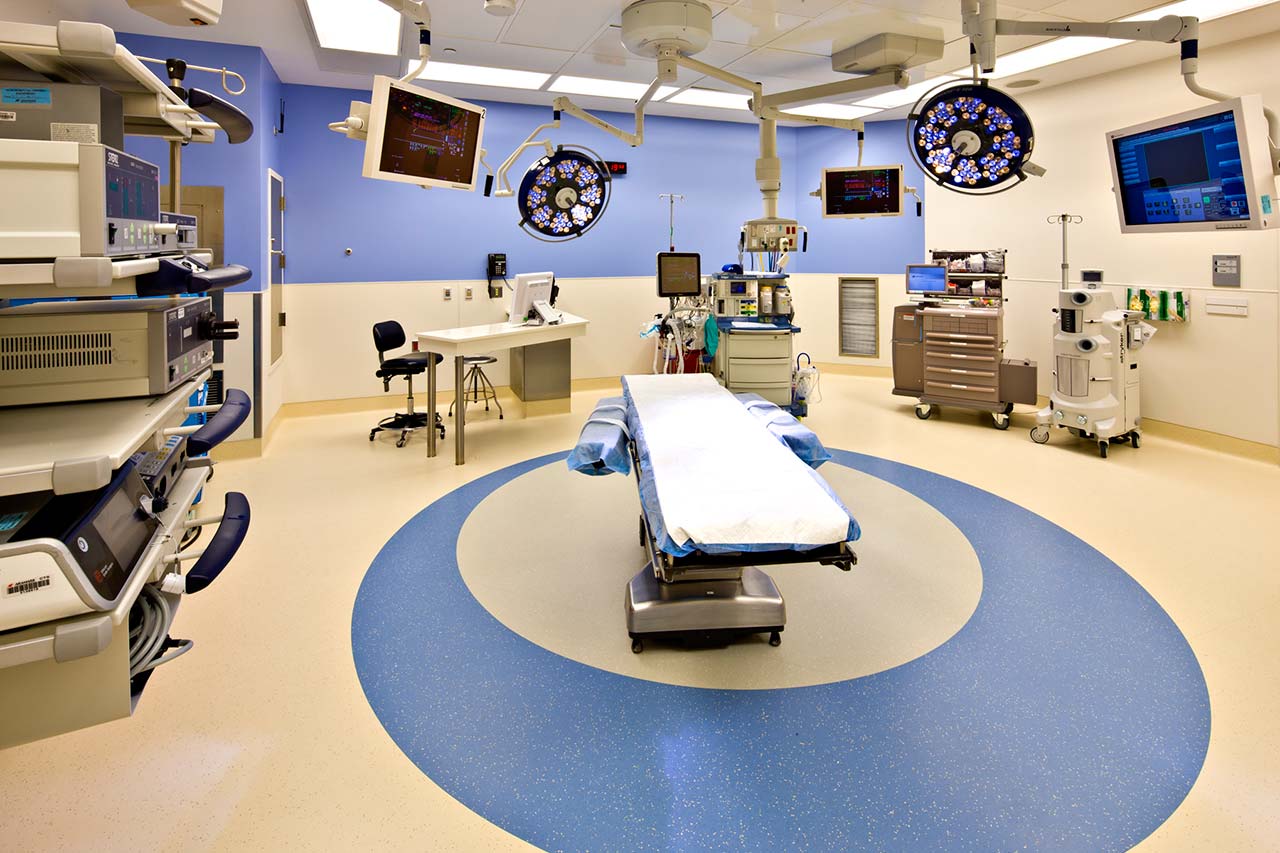In the OR, the stakes are high for perioperative nurses, physicians and others who work as a cohesive team for optimal results. The future holds much of the same — with an added twist. As healthcare reform remains a hot topic, the public eye remains trained on patient safety and privacy issues and healthcare costs in and out of the OR. Perioperative nurses can expect to be key players in transforming both the perioperative environment and the healthcare system.
Featured Image Credit: PennMedicine Princeton Health
“As some form of healthcare reform moves forward, our world is going to change,” says Patrick Voight, RN, BSN, MSA, CNOR, president of the Association of periOperative Registered Nurses. “Our healthcare system cannot continue to have escalating costs. The way that we have practiced and done business in the past is no longer going to cut it.”
Anticipated healthcare reform and Medicare cuts to hospitals and healthcare organizations will have a big impact on the perioperative environment. Perioperative nurses can help develop and drive change that improves patient safety while cutting expenses.
“Perioperative nurses can no longer just operate behind the double doors, and we can no longer just be excellent at providing clinical care at the bedside,” says Voight. “We will have to understand the implications of healthcare reform and its impact on the whole healthcare delivery system and the efficient use of resources.”
Never Events Costly for Everyone
No matter what form healthcare reform eventually takes, perioperative departments and facilities will continue to face reimbursement challenges from Medicare and other insurers, based on quality and quality outcomes. Many of Medicare’s “never events,” for which Medicare will no longer pay, are specifically related to the perioperative patient. These include surgical-site infections and wrong-site surgeries. Poor quality outcomes not only endanger patients, but also put hospitals and healthcare systems at risk.
“The perioperative department is where we can make or break an organization because surgery typically makes up about 60% of a hospital’s margin of profitability,” says Voight. “If an organization is to survive, perioperative nurses are going to need a better understanding of how their interventions impact the quality of care and patient outcomes and contribute to the bottom line.”
In addition, increased reporting of wrong-site, wrong-patient and wrong-procedure surgeries have resulted in more attention from mainstream news outlets and intense professional scrutiny and criticism from the public. Currently, there are approximately three to five wrong-patient, wrong-procedure or wrong-site surgeries are reported in the U.S. every day, according to Voight. For example, NBC News and Medpage recently reported multiple wrong-site surgeries at a large health system in Rhode Island.
In an atmosphere of increased transparency, the pressure will be on perioperative nurses to ensure proper procedures are followed for patients’ safety and to eliminate fines and the other costs of medical errors.
“Just one wrong-site, wrong-patient or wrong-procedure surgery is too many,” says Voight. “It should never happen if we are properly doing time-outs and following universal protocol and the World Health Organization’s Safe Surgery Saves Lives checklist.”
Practice Safe Surgery
The Joint Commission’s universal protocolw and the World Health Organization’s Safe Surgery Saves Lives checklist and other evidence-based standards of practice for providing quality perioperative care are easily accessible through such resources as the World Health Organization and the AORN. But standards have yet to be used consistently across the country, according to Voight, who works as a senior manager in the healthcare consulting practice of Deloitte Consulting and has consulted for more than 100 perioperative departments in 35 states.
“The research and standards are out there, but when I go from organization to organization, I see that some practices are not yet up to standard,” he says.
Perioperative nurses must ensure all members of the perioperative team are on the same page and that standards are understood and followed at all times. These standards include time-outs, timely administration of antibiotics, proper preoperative preparation of the patient, universal protocol and the WHO’s Safe Surgery Saves Lives checklist.
“Now more than ever, perioperative nurses need to take the lead and pull the entire perioperative team together,” says Voight.
Plus, perioperative nurses will be crucial in educating healthcare administrators and executives to understand the expectations of quality care and the ramifications of not following evidenced based-protocols and practices. Nurses with BSNs or advanced degrees often will be in the best position to do this, according to Voight.
“I would encourage every nurse to go back and finish their degrees,” he says. “It is important that perioperative nurses continue to have critical thinking skills and specialized knowledge of perioperative equipment and patient care. But they also will have to take on a broader scope of understanding how surgery fits into the whole continuum of care.”
Patients Trump Techno-gear
The explosion of electronic health record systems and other clinical technology systems will bring challenges and opportunities to perioperative nurses. According to Voight it is critical that perioperative nurses play key roles in the development and selection of perioperative technologies and electronic health records.
“Right now, the complexity of electronic charting can move nurses away from patient care, which is the opposite of what we want to achieve when focusing on patient safety and quality,” says Voight.
Perioperative nurses who have information technology or nursing informatics education and experience will be in the best position to get involved with their facility’s purchasing process because they can guide facilities to technology that allows RNs to have the time they truly need with patients to deliver care.
Tech-savvy nurses also will find opportunities to work with vendors of electronic health records systems to develop systems that are user-friendly and put the focus of care on the perioperative patient, not the computer. Such technologies include hands-free documentation systems that can be efficiently performed at the bedside.
“Perioperative nurses need to be at the forefront of information technology systems as well as patient safety and quality of care,” says Voight.

